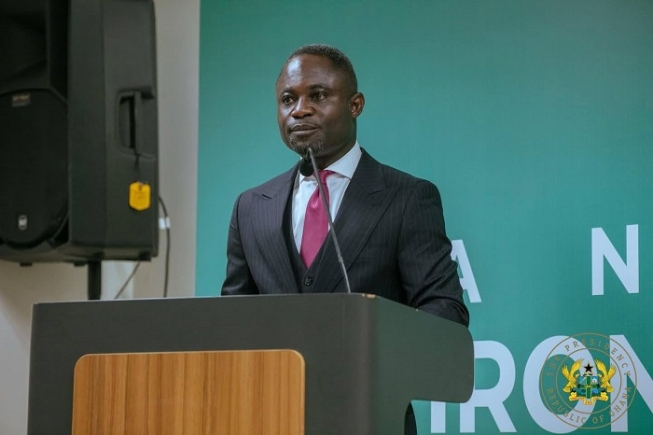The country, yesterday, Wednesday, October 8, started the mass administration of the human papillomavirus (HPV) vaccination, targeting 2.5 million girls aged between nine and 14.
The nationwide vaccination will be carried out in schools, health facilities, and community outreaches following its successful piloting in the country from 2013 to 2018.
After the mass vaccination campaign, HPV, which prevents cervical cancer accountable for almost 2,000 deaths annually, will become part of the country’s routine vaccination schedule.
At a ceremony at Osu in Accra on Wednesday, October 8, to signal the start of the national campaign, the Minister of Health, Kwabena Mintah Akandoh, said the mortality rate for HPV was very high and the country must be united in the fight against cervical cancer.
The occasion, which was chaired by the Deputy Director-General of Ghana Education Service, Professor Smile Gavua Dzisi, also attracted religious and traditional leaders, schoolchildren, and other partners.
Cervical cancer is one of the leading causes of death among women in Ghana, claiming the lives of mothers, daughters, sisters, and friends every year.
More than 3,000 women are diagnosed annually, and over half do not survive, although it is preventable.
The Health Minister said the introduction of new vaccines in the country had come with conspiracy theories about their safety, among other concerns, which were already rife in the rumour mill.
“Let me assure you that this HPV vaccine is safe, effective, and Ghana is not the first country to administer the vaccine. At best, we are joining other African countries like Rwanda, South Africa, and Botswana,” he said.
Mr Akandoh added that the vaccine had been approved by the Food and Drugs Authority (FDA) and the World Health Organisation (WHO), explaining that to take the vaccine as private individuals, it could cost between GH¢1,000 and GH¢3,000, which cuts out many vulnerable and low-income people.
“Therefore, let us all support it because it is going to be part of our routine programme,” he appealed.
He said consent forms had been distributed in the various schools; hence, the vaccine would not be forced on anybody.
Mr Akandoh, however, entreated them to take advantage of the free campaign to protect themselves and generations to come.
The Minister of Health said it was also the beginning of President John Dramani Mahama’s free primary health care to give preventive health care its real meaning.
Mr Akandoh appealed to all caregivers to support the campaign to bring all girls aged between nine and 14 to be vaccinated against HPV, which he said was preventable, “and we are ready to fight it.”
Speaking on behalf of the Director-General of the Ghana Health Service, the Director of Public Health, Dr Franklin Asiedu-Bekoe, described the vaccine as not merely a medical intervention but also a promise to safeguard the health, dreams, and future of Ghanaian girls.
He said while the HPV vaccine had been available globally since 2006 and in parts of Africa for years, the launch marked the first time it was being rolled out in the country nationwide, free of charge, to ensure equitable access for all girls aged nine to 14.
Dr Asiedu-Bekoe called for unity and commitment to end preventable cancers and build a healthier, brighter future for the country’s young women.
The UNICEF Representative, Pauliina Sarvilahti, said the launch of the vaccine was an affirmation of the collective commitment to protecting the health, dignity, and future of every girl in Ghana.
She said the HPV vaccine was a proven, safe, and effective solution that could prevent the vast majority of cases, averting 17.4 deaths for every 1,000 girls vaccinated.
Ghana’s adoption of the single-dose schedule made the protection more accessible than ever before, she added.
“UNICEF is proud to stand alongside the Ghana Health Service, the Ghana Education Service, GAVI, WHO, and our many other partners in this effort. Together, we have secured over 2.5 million doses to ensure no eligible girl is left behind and, in principle, avert about 40,000 deaths caused by cervical cancer,” Ms. Sarvilahti stated.
She, however, stated that vaccines alone were not enough but must be complemented by awareness, cultivating trust, and ensuring widespread acceptance.
“To every parent and caregiver across Ghana, especially mothers and fathers of girls aged 9 to 14, this is your moment to act. By ensuring your daughter receives this vaccine, you are giving her the gift of protection, of health, and of opportunity. Every girl deserves a future where her health is not a barrier to her dreams,” Ms. Sarvilahti said.
Source: Graphic Online
READ ALSO:



